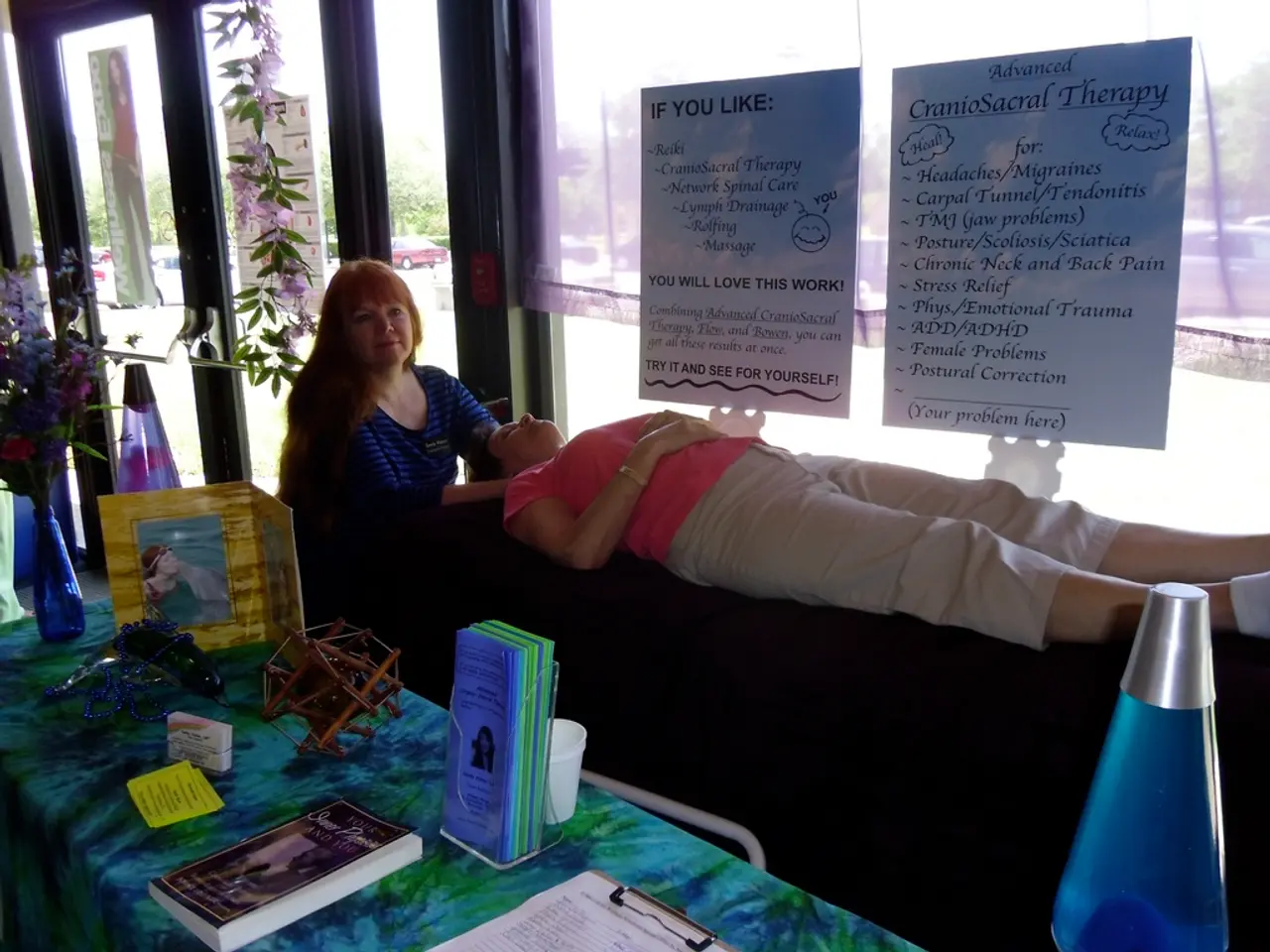Understanding the Psychological Aspects of Effective Organizing and Clutter Reduction
In the quest for a clutter-free home and a more organised life, boosting self-efficacy can significantly enhance the chances of success. Introduced by psychologist Albert Bandura in the late 1970s, self-efficacy refers to one's belief in their abilities to manage and succeed in a task, such as decluttering.
To cultivate self-efficacy for decluttering success, practical strategies rooted in Bandura’s self-efficacy theory focus on building belief in your ability to manage and succeed in the task of decluttering.
**Master self-awareness and self-regulation:** Monitor your decluttering behaviours, judge progress realistically, and react constructively rather than harshly to setbacks. This self-regulatory cycle enhances confidence and motivation.
**Challenge unrealistic standards and negative self-talk:** Replace harsh internal criticism with kind, compassionate language to reshape your perception and reinforce belief in your capacity to improve.
**Celebrate small wins:** Acknowledge and reward incremental progress in decluttering to build momentum and strengthen self-efficacy over time.
**Create supportive environments:** Spend time with people who provide acceptance and encouragement, as social support fosters authenticity and confidence needed for lasting change.
**Engage in authentic self-expression:** Align your outward behaviour—like dressing comfortably or moving joyfully—with your inner self, which builds a grounded sense of self that supports sustained effort toward goals such as decluttering.
These practical strategies reflect Bandura’s identification of self-efficacy as enhanced through mastery experiences (small wins), social modeling and support, verbal persuasion (kind self-talk), and managing physiological and emotional states to reduce stress and increase resilience during challenging tasks.
Decluttering involves effort, decision-making, and action-taking. Mastery experiences, or achieving small, manageable tasks, can help build confidence. Surrounding oneself with an environment that promotes positivity and productivity can enhance self-efficacy during the decluttering process. Cultivating a positive, optimistic mindset can lead to better results in the decluttering process.
Low self-efficacy around decluttering, organising, or maintaining a chaos-free home and life can hinder decluttering efforts. By applying Bandura’s theory to decluttering, we can cultivate compassionate self-awareness, celebrate progress, foster supportive relationships, and align actions with our authentic self, all of which build our confidence and capability to maintain decluttering successfully.
Participating in workshops or webinars on organization and decluttering can offer quick wins and unique perspectives. Many people choose to work with a professional who can offer guidance and verbal encouragement throughout the decluttering process. Following blogs, YouTube channels, or social media accounts of people who share their decluttering journeys and advice can be incredibly motivating. Sharing decluttering goals with friends or family members can offer encouragement and accountability.
Engaging in mindfulness practices like meditation or yoga can help maintain a positive and calm mindset during the decluttering process. Participating in online forums or local groups focused on decluttering and minimalism can provide shared experiences and tips. The video "What Psychologists Know About Your Clutter That You Don't" discusses the connections between clutter and the mind.
Writing down and repeating positive affirmations such as "I am capable of creating an organized space" or "I am in control of my environment" can shape self-efficacy. Being aware of what triggers negative emotions related to clutter and developing strategies to manage these feelings can help navigate and overcome emotional hurdles.
In conclusion, by embracing Bandura’s self-efficacy theory and applying its practical strategies, individuals can boost their confidence and capability to declutter successfully, leading to a more organised and stress-free life.
- Boosting self-efficacy is crucial for a successful decluttering process, as it refers to one's belief in their abilities to manage and succeed in a task, such as decluttering.
- To cultivate self-efficacy for decluttering success, it's essential to master self-awareness and self-regulation, monitor decluttering behaviors, and react constructively to setbacks.
- Small wins in decluttering should be celebrated to build momentum and strengthen self-efficacy over time.
- Creating supportive environments, spending time with accepting and encouraging people, can foster authenticity and confidence needed for lasting change during decluttering.
- Engaging in authentic self-expression, like dressing comfortably or moving joyfully, can help build a grounded sense of self that supports sustained effort toward goals like decluttering.
- Busy individuals seeking quick decluttering wins can participate in workshops, webinars, or follow blogs, YouTube channels, or social media accounts offering unique perspectives and advice.
- Mindfulness practices like meditation or yoga, engaging in online forums or local groups focused on decluttering and minimalism, and writing positive affirmations can maintain a positive mindset during the decluttering process and shape self-efficacy.




